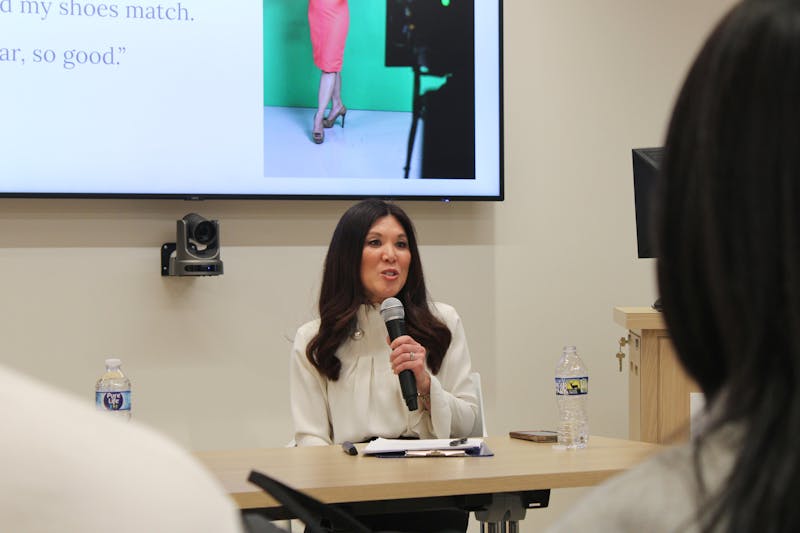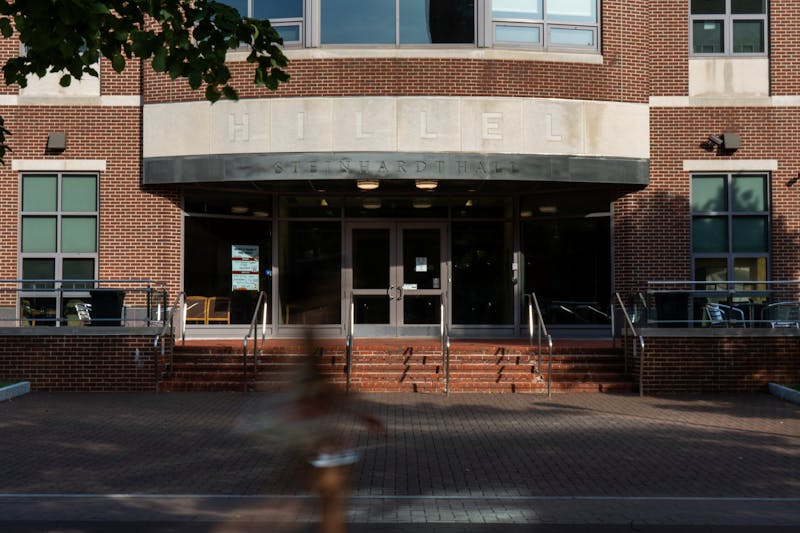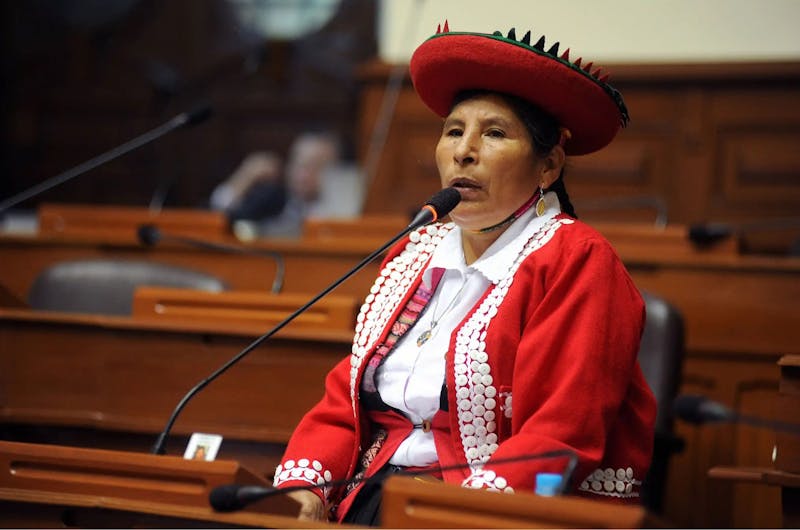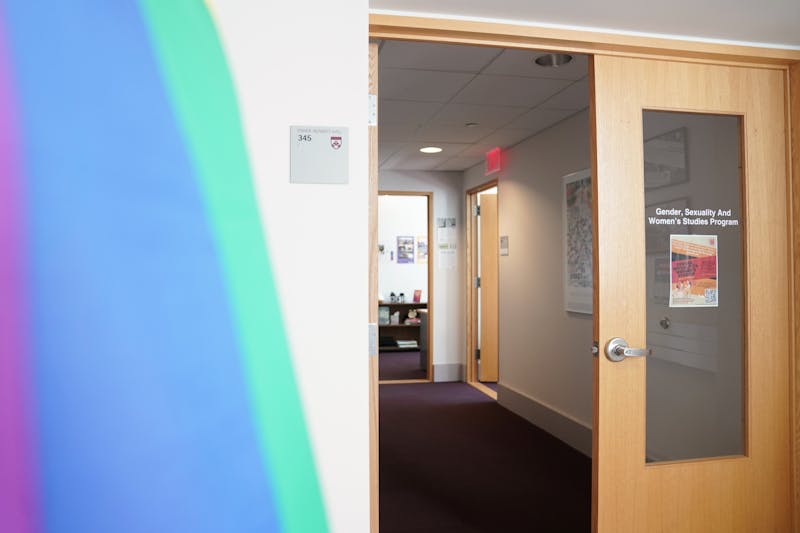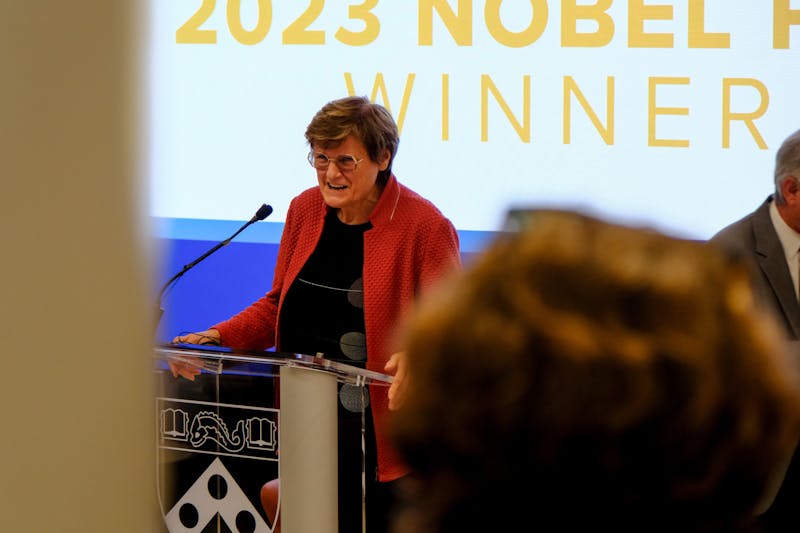
New York Times bestselling author Celeste Ng delivered the Asian American Studies Program's 2024 Yoonmee Chang Memorial Lecture, focusing on her journey as an author, her struggles with mental health, and Asian American representation in literature.
Ng gave the lecture to around 50 Penn students and faculty gathered in the Penn Museum’s Widener Hall on March 27. The event was moderated by ASAM faculty director and Richard L. Fisher Professor of English David Eng, as well as Wharton junior and ASAM Undergraduate Advisory Board member Lynnea Bao. An audience question and answer session, book sale, and book signing followed the discussion.
Ng is the author of three novels that have accrued several awards, including the Asian/Pacific American Award for Literature. Her 2017 novel “Little Fires Everywhere” was adapted into a limited series on Hulu starring Reese Witherspoon.
Ng began the lecture by discussing her family life and upbringing. She said that her family’s predominant academic background in the sciences contrasted with her decision to major in English at Harvard University and pursue writing professionally. Ng felt as though her parents’ experiences with racial prejudice motivated their desire for her to pursue science-related fields.
“They went through a lot of their lives being judged unfairly,” Ng said. “And that, I think, was a lot of why they really wanted [me] to do something where nobody can argue and say you're not qualified. Whereas in the arts, you have no such guarantee.”
She also spoke about her struggle with being vulnerable about her mental health. Ng emphasized that, while she “had depression symptoms,” she did not seek help until much later. She explained that Asian Americans have “culturally stigmatized” view of mental health, making it difficult for many to feel comfortable voicing their mental health needs.
“It's something that I hope we, as a society, are going to talk about more because it's really true that there is a huge, huge shame attached to seeking mental health, or to admitting that you are having any struggles, or to even just sort of admitting that you're having difficulty, especially in the Asian American community,” Ng said.
Although Ng incorporates her Asian American heritage in her work, she emphasized the importance of not diminishing the individuality of Asians by reducing them to the model minority myth.
“We are humans. We have false inferences, and notions, and all these things," Ng said. "I think if the more that people can see Asians as humans — which I feel silly saying that because it's not a sentence that should need to be uttered — but I think the more people can see that, then they can't dismiss Asians in this perilous way. This model, worker bee kind of workforce. It's about being recognized as humans."
This year marked the fifth annual lecture held in honor of Yoonmee Chang, who received her Ph.D. in English from Penn in 2003. The event included a special commemoration of Chang’s efforts to create and contribute to ASAM prior to her death in 2018.
“Yoonmee advocated for the establishment of an Asian American Studies Program, and went on to remain deeply connected, until one day she showed up in my office in McNeil and said 'I really want to donate to a fund to support graduate students here',” Khan said. “It is through her efforts that we have this memorial lecture. We honor Yoonmee every year as a scholar, a colleague, and friend, with the same joy and energy that was truly her spirit.”
One attendee, who identified herself as Jenny, is a master's student studying human development at the Graduate School of Education. Jenny said that she admired Ng as a writer because her own experience in China was very different from Ng's Asian American experience. She explained that Ng’s books allowed her to “unlock new perspectives that I would have never thought of before.”
Ng ended the event by reflecting on the importance of arts and the humanities through storytelling and how they can be used to enact change.
“There's a lot of sort of fatalism in the news,” Ng said. “And the idea that, well, this is our new corporate confrontation. If it’s already a foregone conclusion then why not just give up? And art and writing is different because it is essentially imagining something new, and [it] can give you that space to go okay, maybe things could be different.”
The Daily Pennsylvanian is an independent, student-run newspaper. Please consider making a donation to support the coverage that shapes the University. Your generosity ensures a future of strong journalism at Penn.
Donate







